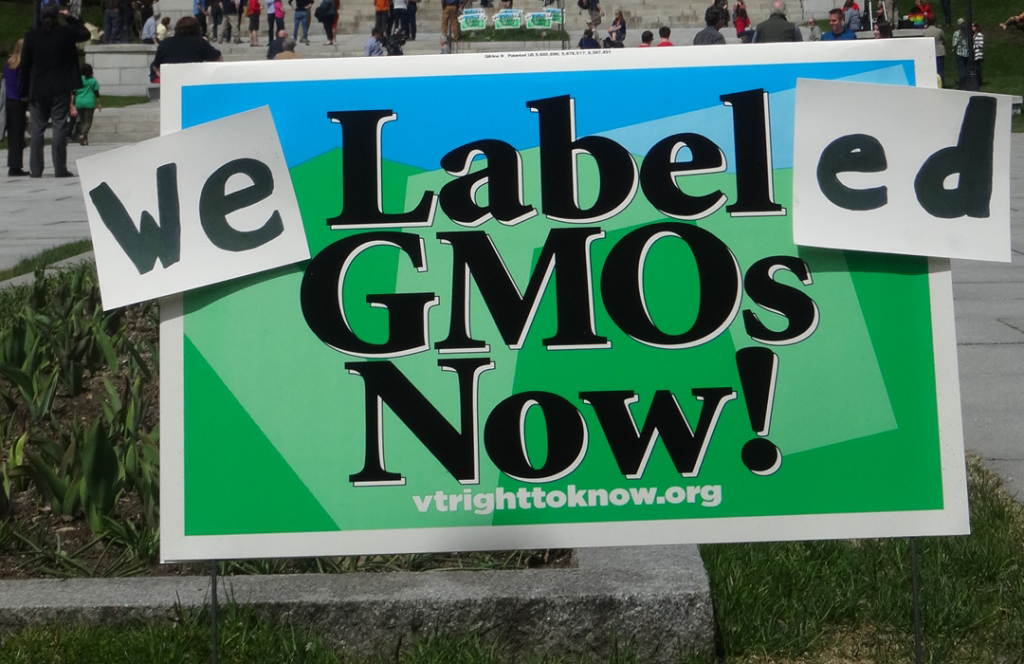On Monday Judge Christina Reiss rejected a motion from corporate food and chemical companies asking Vermont to stop implementation of the state’s GMO labeling law.
The judge also dismissed a number of the plaintiffs’ claims including assertions that the law violates the commerce clause and was expressly preempted by federal law. Possibly the most important aspect of the ruling is that the law’s requirement that GMOs be labeled is constitutional under the First Amendment. The Court declared “Because the State has established that Act 120’s GE disclosure requirement is reasonably related to the State’s substantial interests, under Zauderer, Act 120’s GE disclosure requirement is constitutional.”
“The GMO food giants aren’t used to losing, but they were just knocked on their collective keister by the State of Vermont,” said VPIRG’s Paul Burns. “This ruling lends powerful support to the idea that Vermonters have a legitimate and substantial interest in knowing whether their food has been genetically engineered.”
VPIRG and the Center for Food Safety (CFS) are Amici in the case represented by counsel from the Environmental and Natural Resources Law Clinic at Vermont Law School (ENRLC) and co-counsel CFS. As Amici, these organizations have been litigating in defense of the law since June of 2014.
Laura Murphy of the ENRLC commented on the case, saying “Judge Reiss’ ruling affirms that Vermont’s law to require labeling of GE foods is on firm legal ground. The clinic is proud to be playing a role in this important issue. We believe in this law. Vermont had really good reasons for passing it, and putting factual information on labels is a great way to convey information to consumers.”
“This important ruling affirms the constitutionality of genetically engineered food labeling, as well as the rights of Vermonters and U.S. citizens across the country,” said George Kimbrell, senior attorney for Center for Food Safety and co-counsel in the case. “Americans are demanding the right to know if their food is produced through genetic engineering, for health, environmental and many other reasons. This decision is a crucial step in protecting those rights.”
Next steps in the case may include proceeding to trial to resolve outstanding claims, or an appeal to the United States Court of Appeals for the Second Circuit. Though the Court found that Plaintiffs’ are not likely to succeed on blocking the disclosure requirement, the Court indicated that the “natural” prohibition will face an uphill battle. The law is set to go in to effect on July 1st 2016. Read the full text of the decision.

